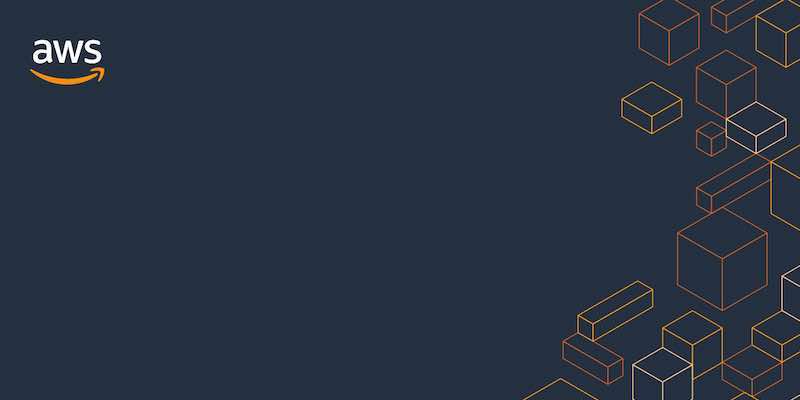AWS CDK: Transforming Cloud Development with Ease

In today’s fast-paced world of cloud development, efficiency, scalability, and ease of deployment are paramount. The AWS Cloud Development Kit (CDK) has emerged as a game-changing solution, revolutionizing cloud infrastructure management and application deployment.
Amazon Web Services introduced the AWS Cloud Development Kit (CDK) in July 2018. It aimed to address developers’ complexities and challenges when defining cloud infrastructure using traditional templating solutions like AWS CloudFormation. With CDK, developers could now utilize their preferred programming languages to build and manage cloud resources, leveraging AWS best practices under the hood. Since its inception, AWS CDK has rapidly gained popularity within the developer community and continues to evolve with frequent updates and enhancements.
What is AWS CDK?
AWS CDK is an open-source software development framework that allows developers to define cloud infrastructure and resources in familiar programming languages, such as TypeScript, Python, Java, C#, and more. It offers a higher-level abstraction than traditional cloud provisioning methods, enabling developers to create, modify, and manage AWS resources easily. CDK leverages the concept of “constructs,” representing AWS resources like S3 buckets, EC2 instances, or Lambda functions, and allows users to assemble these constructs into “stacks” to form complete cloud applications.
Let’s dive into the key features that make AWS CDK a preferred choice for cloud development:
| Features |
|---|
| Familiar Programming Languages |
| Higher-Level Abstractions |
| Declarative Cloud Infrastructure |
| AWS Best Practice Integration |
| Seamless SDK Integration |
| Rich Library of AWS Constructs |
| Multi-Language Support |
| Automatic Dependency Management |
Transitioning to AWS CDK unlocks a multitude of benefits, elevating the cloud development experience:
| Benefits |
|---|
| Increased Developer Productivity |
| Elimination of Template Complexity |
| Simplified Resource Management |
| Faster Iterations and Deployment |
| Real-time Code Validation |
| Infrastructure as Code (IaC) Paradigm |
| Enhanced Collaboration |
| Comprehensive AWS Resource Support |
While AWS CDK is gaining prominence, there are several competitors and alternatives that developers can consider for cloud development:
| Tool | Key Features | Supported Languages |
|---|---|---|
| Terraform | Infrastructure as Code tool for multiple clouds | HCL (HashiCorp Configuration Language) |
| Pulumi | Multi-cloud IaC with support for multiple programming | TypeScript, Python, Go, .NET, and more |
| languages | ||
| Serverless Framework | Framework for building serverless applications | JavaScript, TypeScript |
| CloudFormation | AWS’s native IaC tool | JSON, YAML |
Despite its numerous advantages, AWS CDK has some potential drawbacks to consider:
- Learning Curve: Developers must familiarize themselves with AWS CDK’s constructs and APIs, which may take time.
- Dependency on AWS Updates: CDK’s compatibility with the latest AWS services and features depends on updates from AWS.
- Language Limitations: Certain programming languages may have limited AWS CDK constructs available.
- Limited Multi-Cloud Support: As a product of AWS, CDK primarily focuses on AWS cloud resources.
Usage Areas of AWS CDK
AWS CDK finds its application in various industries and uses cases, enabling developers to streamline cloud development and resource management. Let’s explore some usage areas and real-world examples:
| Usage Areas | Usage Samples |
|---|---|
| Infrastructure Management | Define and deploy VPC, EC2 instances, and RDS databases |
| Serverless Application Development | Create and manage AWS Lambda functions |
| Data Processing and Analytics | Implement Amazon Kinesis data streams |
| DevOps and CI/CD Automation | Integrate with CodePipeline for continuous delivery |
| Internet of Things (IoT) Solutions | Deploy and manage AWS IoT Core resources |
| Machine Learning and AI | Utilize Amazon SageMaker for model training |
Section 8: AWS CDK in Action: Industry Examples
Now, let’s explore how AWS CDK empowers businesses in industries like ghost kitchens, food ordering, and last-mile delivery:
- Ghost Kitchens:
In ghost kitchens, AWS CDK simplifies the provisioning and management of cloud infrastructure for efficient operations. CDK enables ghost kitchen operators to:
| Task | AWS CDK Code Snippet |
|---|---|
| Create and configure EC2 instances for kitchens | new ec2.Instance(this, ‘KitchenInstance’) |
| Set up security groups for network access | kitchenInstance.addSecurityGroup(securityGroup) |
| Deploy and manage serverless APIs for menus | new lambda.Function(this, ‘MenuLambda’) |
| Implement auto-scaling for demand fluctuations | kitchenInstance.scaleOnCpuUtilization(‘CpuScaling’) |
- Food Ordering:
For food ordering platforms, AWS CDK streamlines resource management and accelerates application development:
| Task | AWS CDK Code Snippet |
|---|---|
| Manage RDS databases for order processing | new rds.DatabaseInstance(this, ‘OrderDatabase’) |
| Set up and manage authentication with Cognito | new cognito.UserPool(this, ‘UserPool’) |
| Implement real-time order tracking with Lambda | new lambda.Function(this, ‘OrderTrackingLambda’) |
| Create APIs for order placement and payment | new apigateway.RestApi(this, ‘OrderAPI’) |
- Last-Mile Delivery:
In the competitive last-mile delivery industry, AWS CDK empowers businesses with scalable solutions:
| Task | AWS CDK Code Snippet |
|---|---|
| Store and manage geolocation data | new s3.Bucket(this, ‘LocationBucket’) |
| Build Lambda functions for real-time updates | new lambda.Function(this, ‘RealTimeUpdates’) |
| Implement delivery workflow with Step Functions | new stepfunctions.StateMachine(this, ‘DeliveryWorkflow’) |
| Enhance security with AWS IAM policies | new iam.Policy(this, ‘DeliveryPolicy’) |
The AWS Cloud Development Kit (CDK) has transformed cloud development, offering developers unparalleled flexibility and increased productivity. With its higher-level abstractions, familiar programming languages, and integration of AWS best practices, CDK simplifies cloud infrastructure management and empowers businesses in various industries.